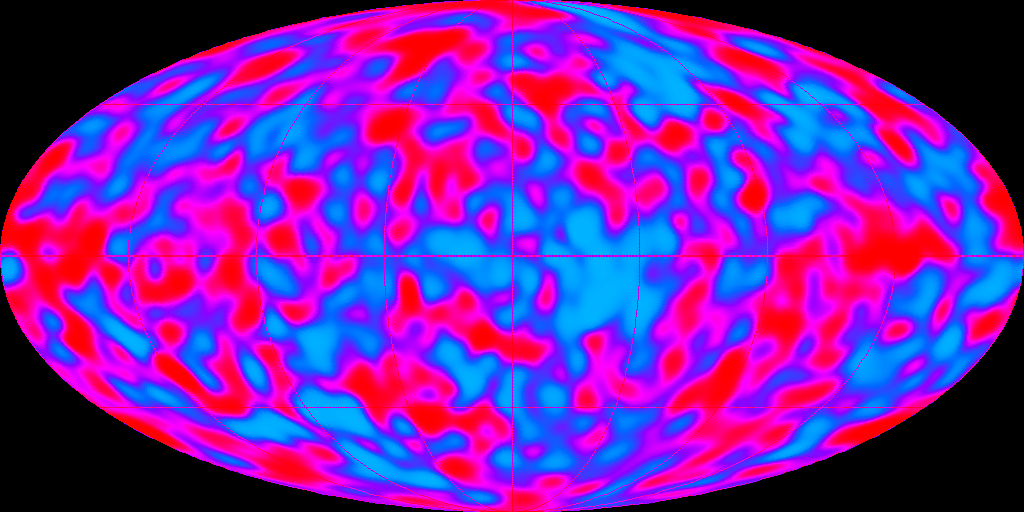

Roughly 400,000 years after the big bang, the universe had expanded and therefore cooled enough to allow hydrogen atoms to form and radiation to occur.
In 1965, Arno Penzias and Robert Woodrow Wilson of Bell Labs, found that wherever they pointed their very precise antenna they would have static. What they stumbled upon, and later won the Nobel Prize in Physics for was the experimental evidence of this relic radiation of this initial thermal radiation, now at 2.7 K.
Cosmic Background Explorer (COBE) satellite was launched in 1989 to examine the irregularities in the radiation. 2001 saw the launch of the Wilkinson Microwave Anisotropy Probe (WMAP), to provide an even more detailed look.
These images provide "maps" of the universe and its irregularities when the universe was only 400,000 years old. These irregularities explain the present day large scale variations of mass.
COBE is the top image and WMAP is the bottom image.
Map Information
NASA Goddard Space Flight Center. 1992. CMB Fluctuations from Legacy Archive for Microwave Background Data Analysis: DMR Images.
WMAP Science Team. 2010. WMAP Internal Linear Combination Map from Legacy Archive for Microwave Background Data Analysis: WMAP Data Product Images.
0 comments:
Post a Comment